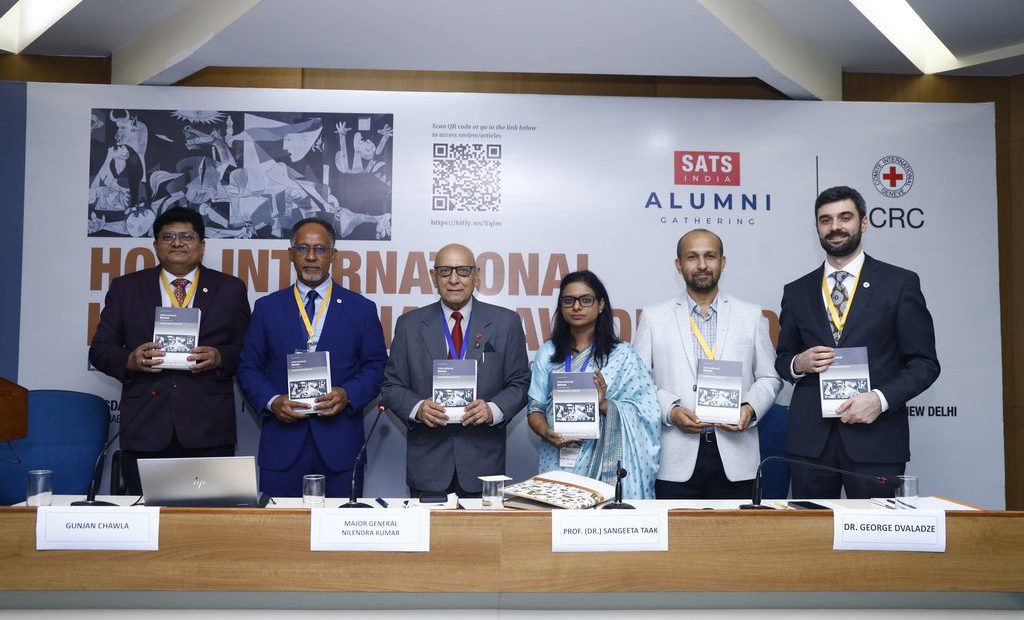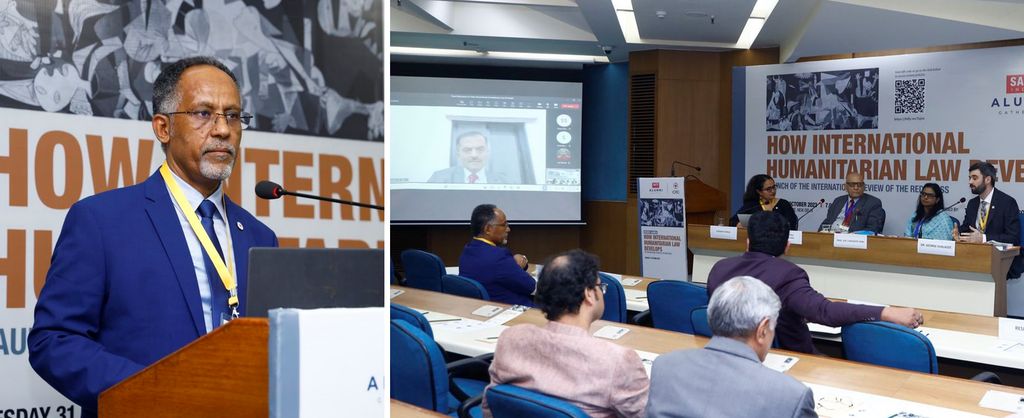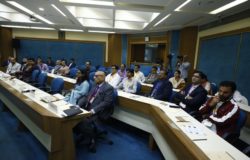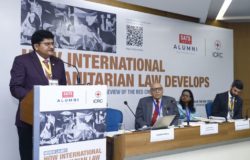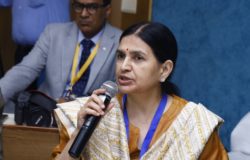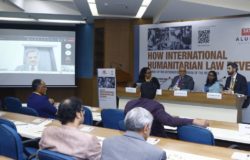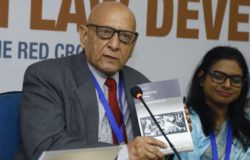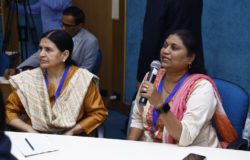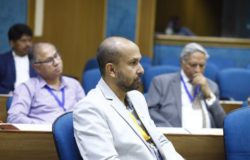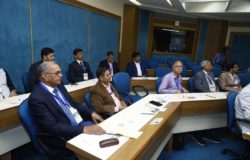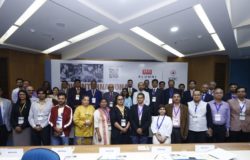A year before the 75th anniversary of the 1949 Geneva Conventions, on October 31, the ICRC Regional Delegation hosted a high-level panel discussion to launch one of the latest editions of the International Review of the Red Cross, themed on ‘How International Humanitarian Law Develops’ at gathering of alumni of the South Asia Training Session on International Humanitarian Law (‘SATS’). The event addressed a unique network of government officials, lawyers, policymakers, members of the armed and police forces, and influential academics who have been a part of the SATS program, which was initiated 25 years ago in India.
The ICRC, through the SATS, encourages deliberations on International Humanitarian Law (IHL) with professionals and experts in the field — including government officials working with ministries/departments — in the field of international law, international relations and defence studies on IHL. The event saw the delegation reconnecting with the SATS alumni who have continued to contribute to the promotion and development of international humanitarian law in India.
The session commenced with the inaugural address by Mr Kedir Awol Omar, Head of the Regional Delegation for India, Nepal, Bhutan and the Maldives Prof. (Dr.) Bimal Patel, Vice-Chancellor of Rashtriya Raksha University, member of the National Security Advisory Board of India, as well as a member of the Editorial Board of the International Review of the Red Cross, delivered the keynote address. The panel discussion featured Major General (retd.) Nilendra Kumar, former Judge Advocate General, Indian Army and Executive President, Indian Society of International Law; Dr. Sangeeta Taak, Assistant Professor of Law at Rajiv Gandhi National University of Law and Dr George Dvaladze, ICRC’s Regional Legal Adviser for South Asia. The session was moderated by Ms. Gunjan Chawla, Legal Adviser to the ICRC New Delhi Regional Delegation. Mr Sandeep Bali, FAS Delegate and Head of Prevention, ICRC, delivered the vote of thanks. The discussion focused on contemporary trends in international lawmaking and perspectives of India – with its essential historical and contemporary role in the clarification and development of international humanitarian law. The ICRC will continue to raise awareness of IHL and engage in such deliberations.
Established in 1869, the International Review of the Red Cross (‘the Review’) is one of the oldest international law journals, focusing on international humanitarian law, policy, and action. The Review’s audience includes governments, international organizations, non-governmental organizations, humanitarian practitioners, academics, the media and all those interested in humanitarian issues.
Photo Gallery


